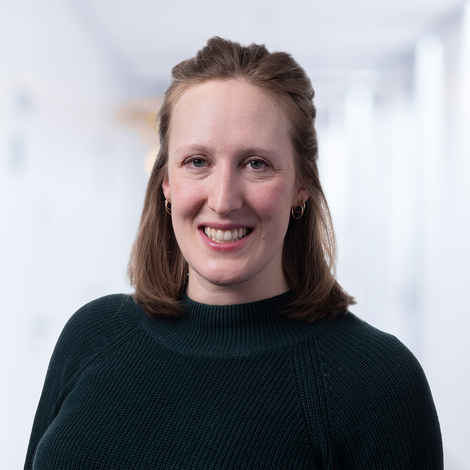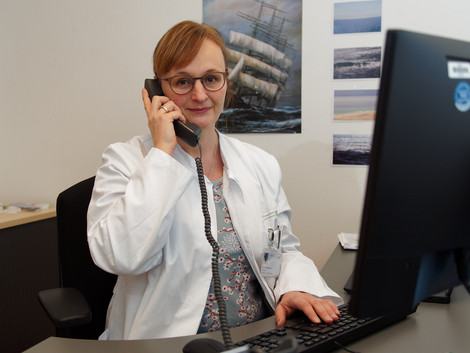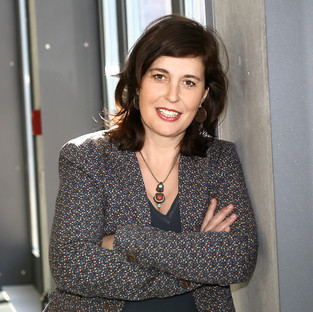Well Advised: New Multi-Mode and Standardized Counseling Models for People in Early Stages of Alzheimer’s Disease or in the Context of Dementia Prediction
Department of Medical Ethics and History of Medicine

Funding: Forschungsförderung 2019 der Deutschen Alzheimer Gesellschaft e.V. Selbsthilfe Demenz (DAlzG)
Project Period: 2020 – 2022
Carried out by:
- Prof. Dr. Silke Schicktanz
- Julia Perry, M.A.
- Dr. Katrin Radenbach (UMG, Klinik für Psychiatrie und Psychotherapie)
This project will be conducted in cooperation with Benjamin Herten, M.A. at the IEGUS - Institut für europäische Gesundheits- und Sozialwirtschaft.
Background
Biomarkers enable the diagnosis of Alzheimer's Disease many years prior to the appearance of first clinical symptoms. However, this form of dementia risk prediction lacks specific target group-oriented, quality-assured, low-threshold and flexible information and counseling services as well as training modules for counseling experts. The research project aims to close this gap and thereby connect to already existing international and national counseling concepts for the early diagnosis of Alzheimer's Disease. This was also a central focus of the BMBF-funded discourse project "Dilemmas of Predictive Dementia Diagnostics".
This pilot study will explore the following questions:
- What concrete content should counseling services entail?
- How can multidisciplinarity of counseling be implemented in practice?
- How can flexibility of the counseling environment (place of counsellng and composition of participants) be implemented?
- How can counseling be made long-term and sustainable?
- What further training courses are needed for the various disciplines?
Aims
- Draft of a realizable counseling concept with standards for risk and early diagnosis according to the 5 criteria of the joint statement of the Ad Hoc Working Group in the German Stakeholder Conference on "Conflicts in Predictive Dementia Diagnostics": long-term, flexible and formalized; multidisciplinary and open to relatives; comprehensive; low-threshold and encompassing; supportive
- Concrete analysis of the social and legal framework conditions that should be adapted to improve the counseling services for this patient group.
- Development of an advanced training module to train counselors so that they can apply the designed counseling concepts and materials in memory clinics. Following the aim formulated in the S3-guidelines "Dementia" (2016) to train so-called dementia counselors.
Information and counseling hotline
A telephone support service for people with incipient memory disorders and for concerned relatives.
When people are concerned about their own memory or that of relatives, good advice can help them decide whether and to what extent diagnostic tests are useful and helpful.
Specialist information on dementia, early detection and dementia prediction is sometimes difficult to obtain, and easily accessible counseling services are rare. Therefore, we would like to create a new offer for people with incipient memory disorders and for concerned relatives with the information and counseling hotline. They can ask questions on the phone and find out about possible testing procedures or contact points.
From 25.01.2021, the Department of Psychiatry and Psychotherapy (Klinik für Psychiatrie und Psychotherapie) of the University Medical Center Göttingen (UMG) in cooperation with the Department for Medical Ethics and History of Medicine of the UMG and the IEGUS - Institute for European Health and Social Economy (IEGUS – Institut für europäische Gesundheits- und Sozialwirtschaft) – offers an information and counseling hotline twice a week.
A specialist in psychiatry and psychotherapy with many years of experience in the treatment of people with memory disorders, offers initial assistance to callers on the phone. However, no diagnosis is made during the calls, nor is there any remote treatment. The goal is to support affected persons in their concerns individually and according to their needs and to provide information and access to suitable contact points. The counseling is free of charge and is aimed at people from Göttingen and the surrounding area.
The counseling sessions are subsequently evaluated scientifically on a voluntary basis: If the person calling agrees, contact is made with a staff member of the Department for Medical Ethics and History of Medicine after the consultation. This person later asks the person how he or she felt about the telephone consultation, what he or she took away from the conversation, or what may have been missing. The appointment for the conversation, which lasts about 30 minutes, can be chosen by the person. The conversation takes place via telephone. It goes without saying that all personal data collected from callers is treated as strictly confidential throughout the project and in accordance with the guidelines of the Data Protection Act. The contents of the conversations are not passed on to third parties.
The information and counseling hotline is part of the model project "Gut beraten: New multimodal and standardized counseling models for people in the early stages of Alzheimer's disease or in the context of dementia prediction", which is funded by the Deutsche Alzheimergesellschaft e.V. Selbsthilfe Demenz. The aim of the project is to sustainably improve the range of counseling services for people affected by dementia in the early stages or in the context of dementia prediction, as well as for their relatives.
The information and advice telephone for persons with incipient memory disorders and concerned relatives will be available as a point of contact from January 25, 2021 on Mondays from 10:00-12:00 and Thursdays from 14:00-16:00 via the telephone number 0551 - 39 62122.

contact information
- telephone: +49 551 3969315
- e-mail address: julia.perry(at)medizin.uni-goettingen.de


